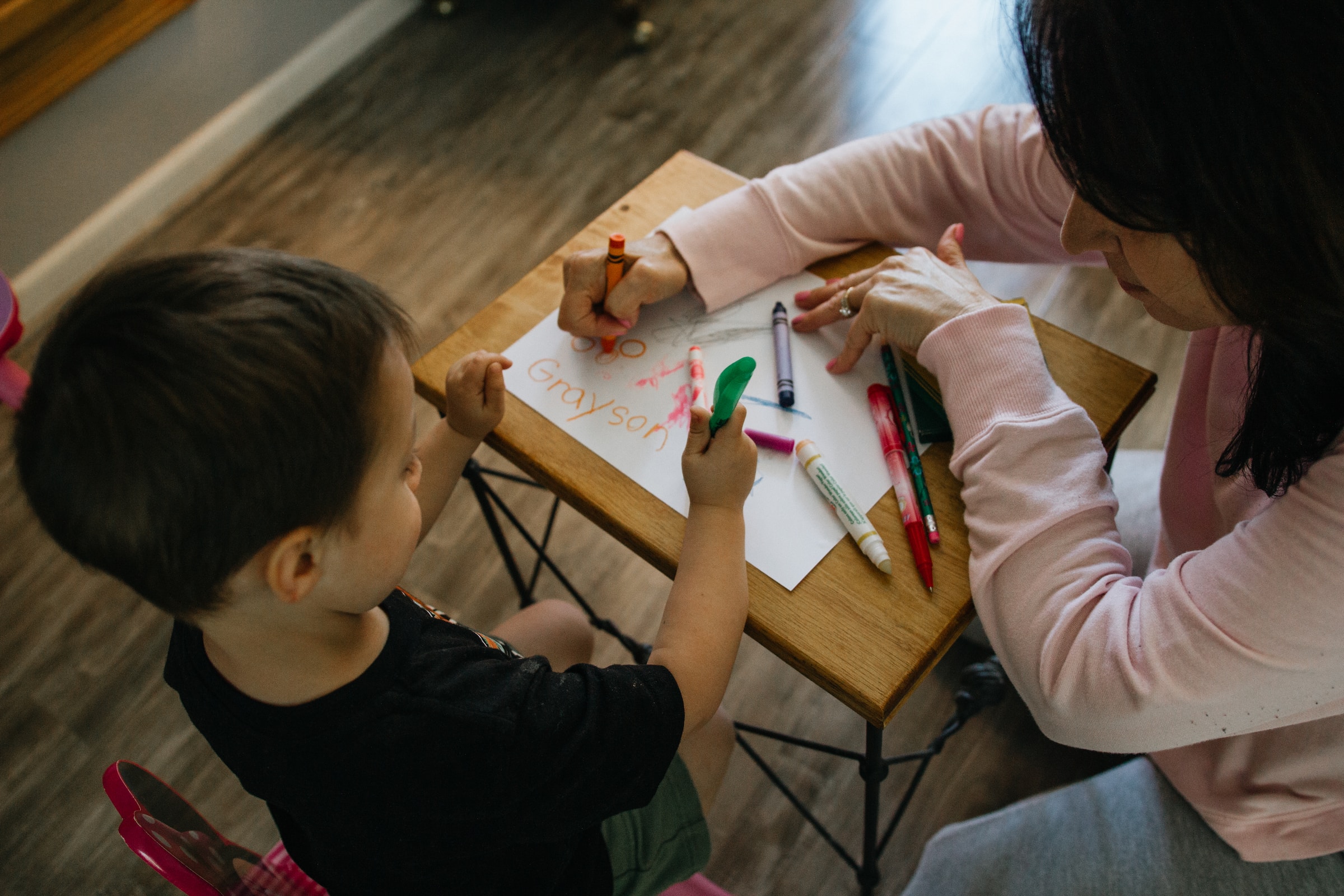It’s essential for kids to have a daily routine that supports their growth and development. Children build good habits, become responsible, learn about consistency, and more by planning their activities and following their routines.
Routines can bore your preschooler out over time, but there are ways to make them fun. Here’s how to create a predictable yet enjoyable routine for your child.
Plan Your Child’s Routine with Them
When setting a daily routine, it’s best to include your child in the process. Discuss the importance of routines with your preschooler, encourage them to share their ideas, and plan while considering how your child wants to accomplish their tasks. This way, they know how routines help them grow and see fun in these patterns.
Create a Routine Chart
If your preschooler needs a visible reminder of their daily schedule, try making a visual, readable preschool routine chart. It shows your child their activities in a picture or two (or more), so they know what they’ll be doing for the day.
Once finished, stick your preschooler’s routine chart on your refrigerator, pin it to a corkboard, or place it in another visible place. Also, discuss the schedule with your child before they start it.
Bonus Tip
Get your child to mark all completed activities on their preschool daily routine chart. Then, discuss what they’ve done for the day (or week) and praise them for finishing everything on the chart.
Include Fun Learning Activities & Play in Your Child’s Schedule
Setting a daily routine can be challenging if your child is more spontaneous. In this case, you could include activities such as gardening or swimming in your preschooler’s routine. These activities mix learning with fun, making preschool daily routines enjoyable.
Moreover, playtime is as essential to your child’s routine as school and household chores. Remember to add play to your preschooler’s daily schedule, whether it’s structured, done outdoors, or free play. Playtime is their opportunity to get creative, play pretend, and use the skills they’ve picked up.
Take Time to Bond with Your Preschooler
Playing and talking with your child every day allows them to learn new words and tell you about their day. It’s a great way to improve your relationship with your preschooler.
Going back to the extra tip on routine charts we’ve shared earlier, it can serve as bonding time for you and your child. You can discuss your preschooler’s daily routine during the day or before bedtime.
Connect Activities in Your Kid’s Routine
Many of us include boring activities in our daily routines, which can discourage your child from following their own routine.
By linking activities in your child’s routine, they’ll be motivated to complete repetitive tasks like cleaning their room. It can even remind your preschooler to do what’s after their current task.
Fill Your Preschooler’s Routine with Music
Playing music or singing songs can also help you create a fun daily routine for your child. Here’s how to make music a part of their routine:
- Pick a song and play or sing it to prompt your child to put toys away, wash up for dinner, get dressed, or do another activity on their routine. This will remind them what to do next and help them prepare for the task.
- Whenever your preschooler washes their hands, pick a simple song or make one up together to help them learn how much washing is needed to reduce germs.
- You can also remind your child of their daily routine with a device like a radio alarm clock. The music from that device can get your child to wake up, prepare for school, go outside, or do another task in their routine.
Why is Routine Important for a Child?
Regular routines are essential to children for the following reasons:
Children Develop Healthy Habits Through Routines
With a consistent daily routine, your child can develop good habits, including washing their hands, brushing their teeth, and combing their hair. A pattern like this requires practice and repetition, and you may need to ask your child to do their chores. A fixed routine can help them accomplish tasks or build good life-long habits.
Routines Reduce Your Preschooler’s Screen Time
The less time your child spends on social media and screens, the more time they have for physical activities outdoors or reading books.
You can manage your preschooler’s time online by having them use their phone at a set time — think after their homework is done or before meal time. This practice helps your child grasp the concept of prioritizing more significant matters and allocating time accordingly.
Kids Learn to Be Responsible
A fixed routine also teaches your child to grow accustomed to their responsibilities and require fewer reminders about these tasks. In turn, they become more independent.
Routines Help Preschoolers Learn Essential Skills
Many might view daily routines as maintenance tasks, including meals, errands, bedtime preparations, and bathtime. But these seemingly ordinary activities are valuable opportunities for your child to learn, grow, and have fun. Think of routines as your preschooler’s opportunity to develop self-confidence, curiosity, social skills, self-control, communication skills, and other essential skills.
Encourage Your Child to Follow a Daily Routine
Routines play a significant role in your child’s growth and development. However, they can get repetitive. A fun daily routine gives your preschooler time for learning and play, ultimately combating boredom.
For more parenting and childcare tips, visit the Rayito de Sol blog today.











